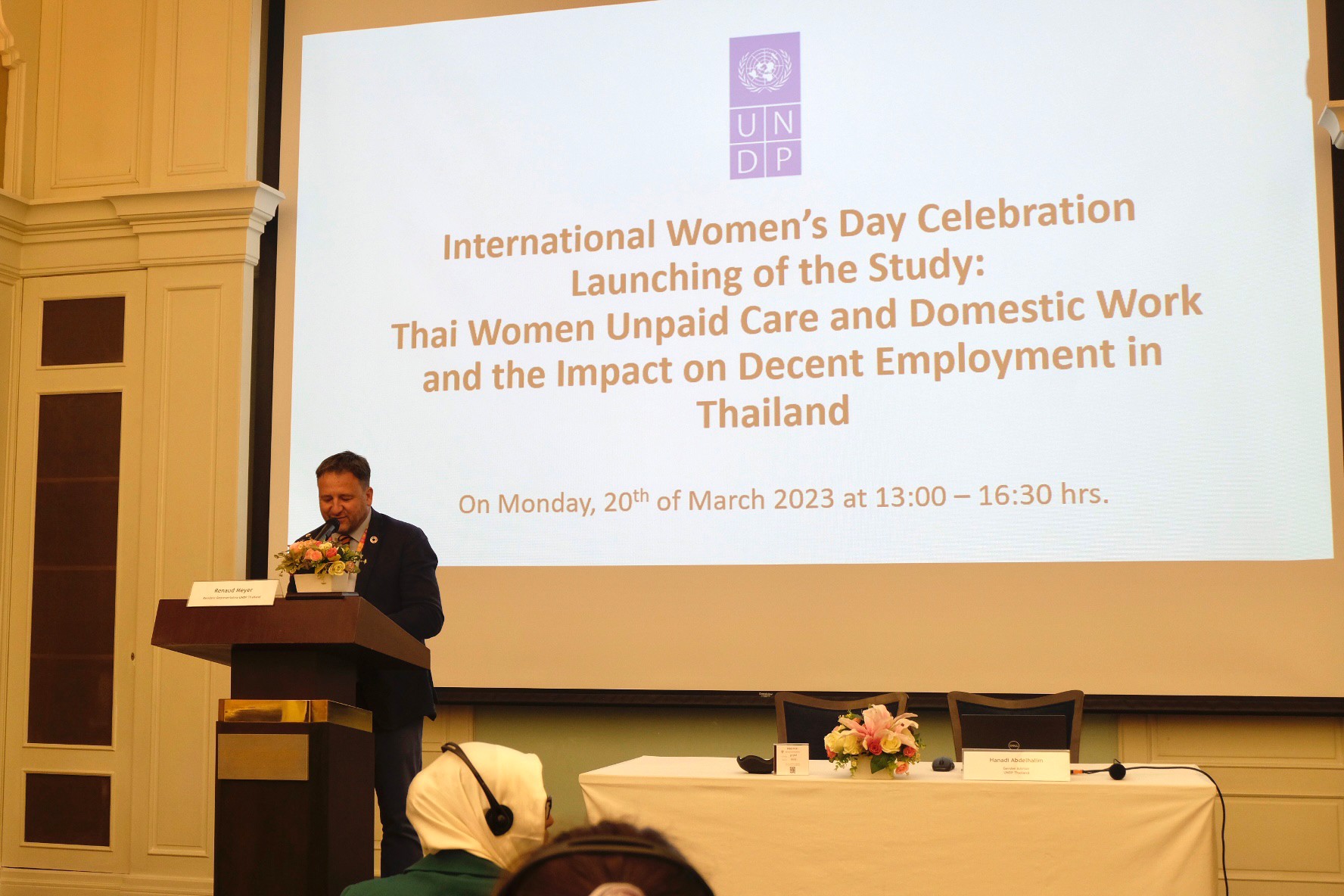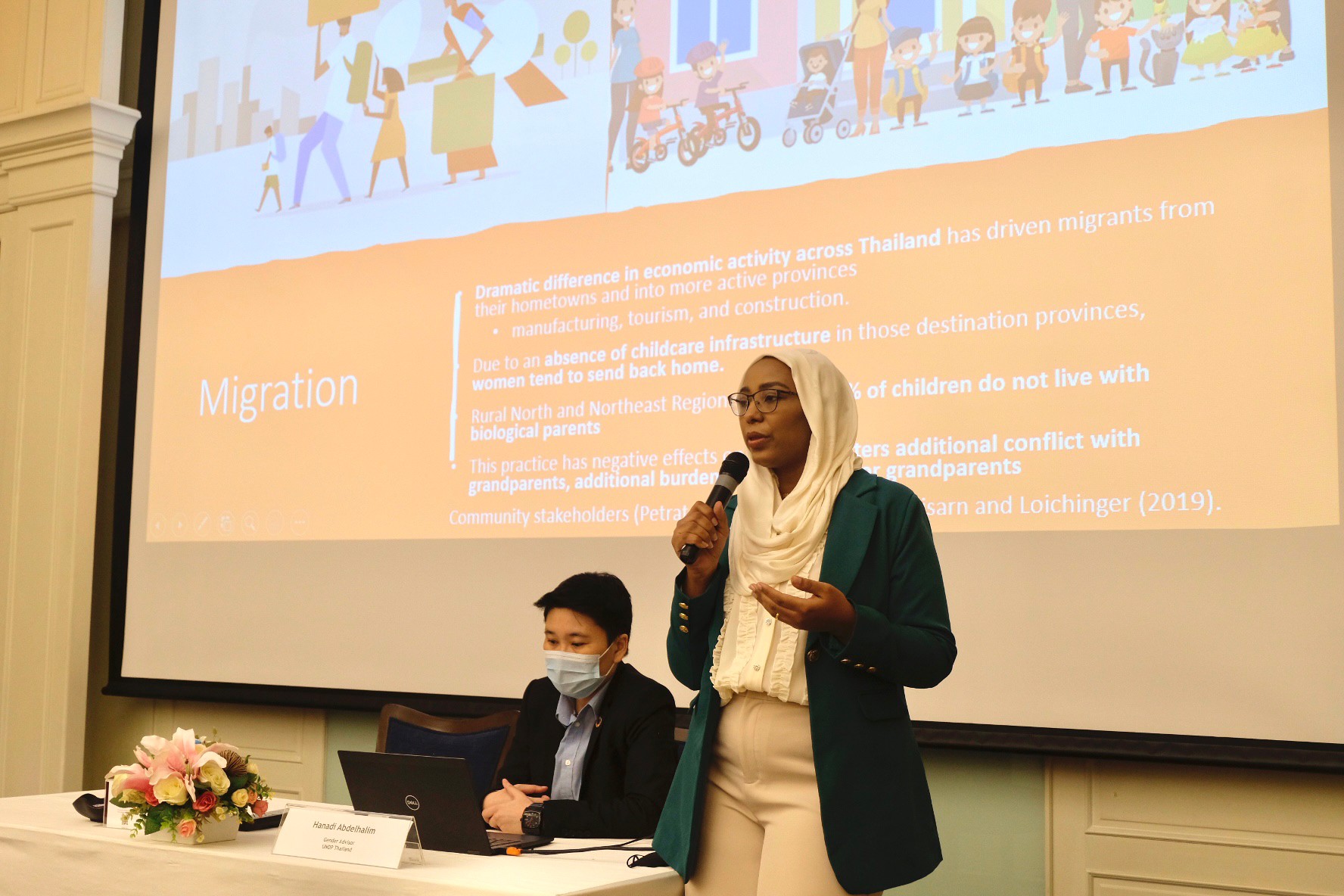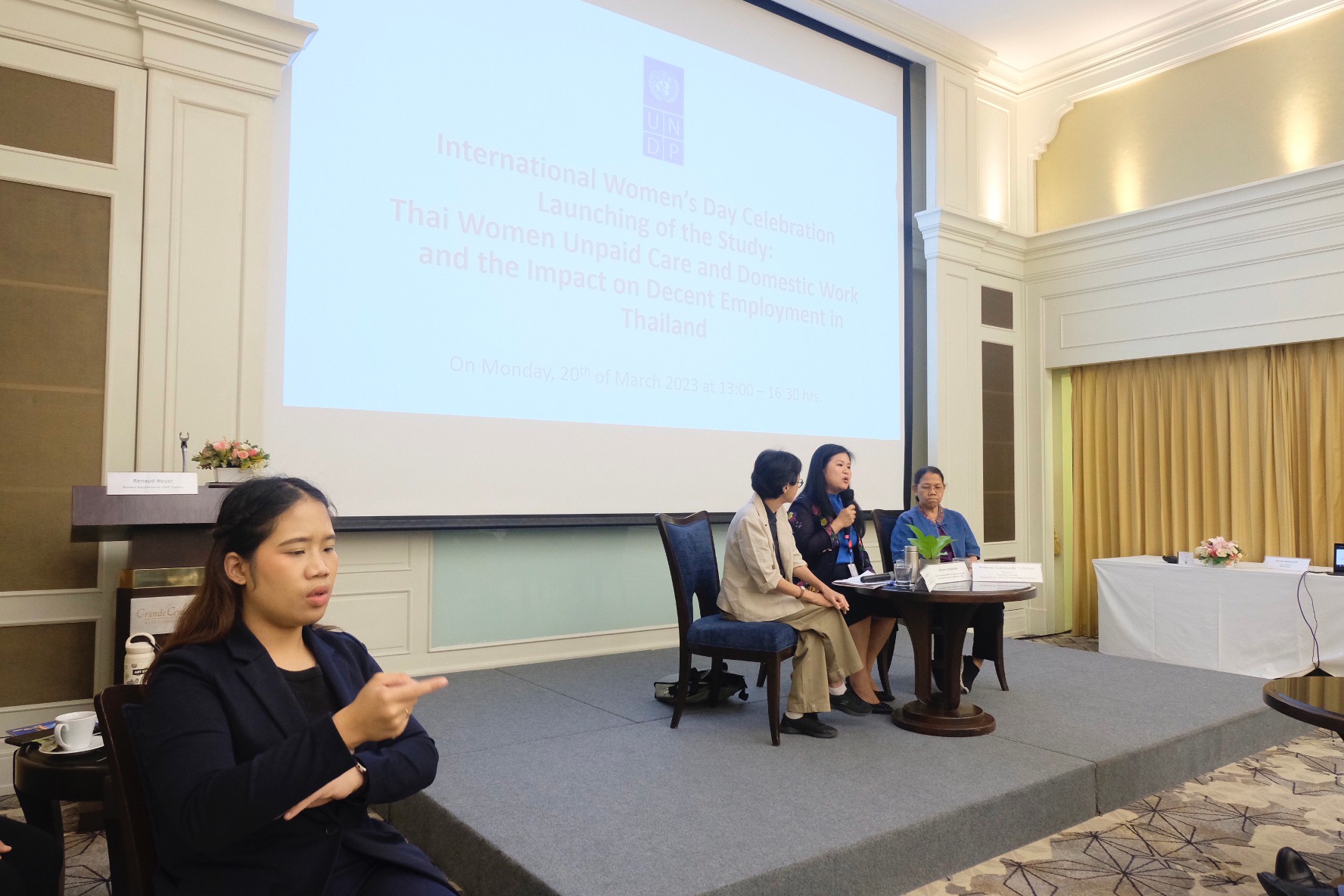New report on Thai Women’s Unpaid Care and Domestic work highlights impacts on decent employment
New UNDP study urges law and policy reform to redistribute and reduce care burden of women
March 19, 2023

Bangkok, Thailand, 20 March 2023: Findings from a new study by the United Nations Development Programme (UNDP) reveal the need for law and policy reform to enhance women’s economic empowerment without simultaneously burdening them with worse time deficits. This can radically transform the economy and advance gender equality.
The new study has demonstrated in multiple contexts that unpaid work contributes to the stalled progress on gender gaps in employment, earnings, and work quality. This report contributes to the understanding of the overall magnitude, dynamics, and impacts of unpaid care and domestic work on women in Thailand.
Among the most significant findings, UNDP’s new report titled, ‘Thai Women’s Unpaid Care and Domestic Work, and the impact on Decent Employment’ found that women’s unpaid care work in Thailand constitutes approximately 4.2% of GDP in comparison to men’s unpaid work of 1.3%. Recognizing Thailand’s ageing population, coupled with child and elder care infrastructure and supply, along with women’s labour force participation and employment status, the report covers key areas that need to be addressed to create gender-related cultural shifts and active labour market policy changes.
The COVID-19 pandemic, along with its consequences, the closure of childcare centres and primary schools, and the separation from regular channels for elder and disability care, has worsened the situation for millions of women across the world. Care work has been considered the responsibility of individual households, although the work itself has been primarily done by women.
Women’s unpaid care and domestic work, together with its impact on labour market participation, has become an increasingly important topic in the global policy arena. The pervasive belief in most communities that women are caregivers has shaped labour markets all over the world.

Opening Remarks by Renaud Meyer, UNDP Resident Representative to Thailand
Commenting on UNDP’s role, Renaud Meyer, UNDP Resident Representative to Thailand stated, “Social norms, attitudinal and behavioural change is extremely crucial in order to redistribute and reduce the care burden society has placed upon women. Greater investment is needed to recognize, reduce, and redistribute unpaid care work, reward paid care work by promoting more decent employment arrangements and support workers’ representation in social dialogue and collective bargaining. Such investments will contribute to gender equality and support Thailand’s progress towards achieving the Sustainable Development Goals.”

Presentation of key findings: Thai Women Unpaid Care and Domestic Work and the Impact on Decent Employment in Thailand by Hanadi Abdelhalim, Gender Advisor of UNDP Thailand

Panel Discussion “How can innovation and technology help reduce the burden of unpaid care and domestic work in women?”
The key findings of the report were presented by Hanadi Abdelhalim, the Gender Advisor of UNDP Thailand, to high-level representatives and participants present at the event, which included government entities, the private sector, development sector partners, diplomatic missions in Bangkok and UN agencies. A dedicated panel discussion also took place under the theme of ‘How can innovation and technology help reduce the burden of unpaid care and domestic work in women?’. The panel consisted of Jittima Srisuknam, Senior Programme Officer for Thailand and Lao PDR of the International Labour Organization; and Poonsap Suanmuang Tulaphan, Director of Homenet Thailand; and moderated by Usa Lertsrisantad, Director of the Association for the Promotion of the Status of Women.
It is critical that Thailand avoids backsliding in areas with some momentum and maintains progress in areas with little forward movement as a result of the pandemic. A key component for this is redistributing the burden of unpaid care and domestic work within households.
Gender roles and conventions regarding who performs care work are shifting. Public campaigns encouraging boys and men to participate more in family work will significantly benefit them, their children, and other family members and increase women’s access to decent work. In comparison to traditional infrastructure investments, care economy investments have the potential to fundamentally alter the labour market for women, thereby generating inclusive economic growth and contribute towards poverty reduction in Thailand.
Looking beyond, findings and recommendations of this report will further inform UNDP’s efforts in its ongoing collaboration with national stakeholders to shape Thailand’s reform agenda. The Thai Parliament, the Ministry of Social Development and Human Security, government and non-government partners will be actively engaged to make policy change that will promote sharing of domestic and care work between men and women, and create more paid jobs in the care economy.
The study was supported by the Government of Japan and commissioned by UNDP, in collaboration with the Department of Women’s Affairs and Family Development of the Ministry of Social Development and Human Security, the Ministry of Labour, the International Labour Organization (ILO) and UN Women.
To download the full report, please go to: https://www.undp.org/thailand/publications/thai-womens-unpaid-care-and-domestic-work-and-impact-decent-employment
###
For more information, please contact:
Suparnee (Jay) Pongruengphant, Project Manager – Gender Equality and Social Inclusion, UNDP Thailand suparnee.pongruengphant@undp.org | Mobile: +668 1714 3954
UNDP partners with people at all levels of society to help build nations that can withstand crisis, and drive and sustain the kind of growth that improves the quality of life for everyone. On the ground in more than 170 countries and territories, we offer global perspective and local insight to help empower lives and build resilient nations. For more information, visit our website.

 Locations
Locations